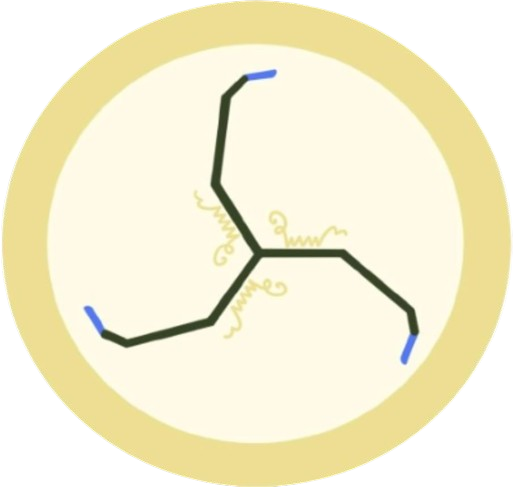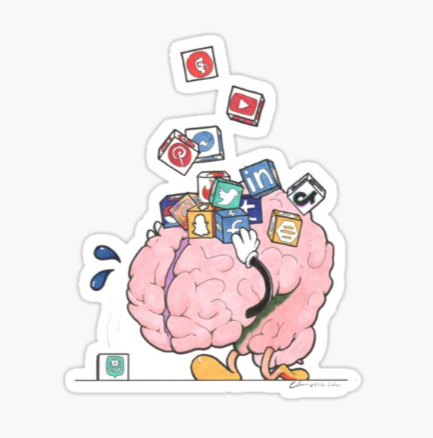Introduction: Social Media usage
We all love using social media. It’s such a harmless thing to do, right? Well, you’re mistaken. Social media can have a grave impact on our mental health. Still don’t believe me? Read this article to find out more about Social media and its impact on our brains.
Social media’s reach is far and wide. Platforms were once seen as online spaces for socializing but are now utilized for matters of business, dating, politics, and daily communication.
In 2023, there were around five billion social media users worldwide, with over one billion users in China alone, and over 860 million in India. Additionally, the United States had 308 million social networking users in 2023. Europe was home to approximately 680 million users, while the smallest audiences were found in Central Africa and Central America.
Dopamine and the Brain
Dopamine is a type of monoamine neurotransmitter. It’s made in your brain and acts as a chemical messenger, communicating messages between nerve cells in your brain and your brain and the rest of your body. Engaging with social media can trigger dopamine release, particularly through likes, shares, comments, and notifications.
Consequences of Social Media Addiction
A 2018 British study tied social media use to decreased, disrupted, and delayed sleep, which is associated with depression, memory loss, and poor academic performance. Social media use can affect users’ physical health even more directly.
When reviewing others’ social activity, people tend to make comparisons such as, “Did I get as many likes as someone else?,” or “Why didn’t this person like my post, but this other person did?” They’re searching for validation on the internet that serves as a replacement for meaningful connections they might otherwise make in real life.
A New York Times article that ran in June 2018 features a newlywed couple who nearly separated after their honeymoon. The reason: the wife spent more time on the trip planning and posting selfies than she spent with her husband.
The Impact of Social Media on Dopamine Levels
Social connection has become drugged by social media apps, making us vulnerable to compulsive overconsumption. These apps can cause the release of large amounts of dopamine into our brain’s reward pathways all at once, just like heroin, meth, or alcohol. They do that by amplifying the feel-good properties that attract humans to each other in the first place.
The specific mechanisms involved therefore parallel those felt in the real world. For example, the feeling of rejection that is experienced through social media activates the same regions of the brain that respond to real-world rejection. From a neurological perspective, this means that the brain circuitry implicated in reward is involved. Dopamine is one of the key neurotransmitters involved in reward pathways, memory motivation, and movement. Thus, the short-term dopamine-driven feedback loops lure users into coming back for more, feeding into a social media addiction.
Mental Health Implications
Social media use may increase feelings of anxiety and depression, specifically in teens and young adults. The addictive nature of social media activates the brain’s reward centre by releasing dopamine. When we post something, our friends and family can “like” it, giving us a boost of dopamine. However, when we don’t get that boost or approval, it can impact our sense of self and adequacy.
Social media is often called a “highlight reel,” displaying the best parts of a user’s life. However, having access to other’s highlight reels can increase our own feelings of dissatisfaction with our own day-to-day. This can impact self-esteem, trigger anxiety, and make us want to use social media more.
Mitigating Strategies
A great way to improve your relationship with social media and help decrease the negative effects is to decrease your daily screen time. How can this be done? Here are some tips to decrease screen time:
- Set time limits on social media apps within your phone settings
- Designate specific hours for social media usage
- Look through your friends and followers list and unfriend people whose accounts make you feel bad about yourself
A positive relationship with social media is personal to you. Take time to evaluate your social media use and how it affects you. Taking any steps to limit screen time or improve your relationship with your phone can positively impact your mental health.
“The reason we struggle with insecurity is that we compare our behind-the-scenes with everyone else’s highlight reel.” – Steven Furtick
-Smaya Nellipudi
Sources:
- https://www.statista.com/topics/1164/social-networks/#topicOverview
- https://www.theguardian.com/global/2021/aug/22/how-digital-media-turned-us-all-into-dopamine-addicts-and-what-we-can-do-to-break-the-cycle
- https://scopeblog.stanford.edu/2021/10/29/addictive-potential-of-social-media-explained/
- https://sites.dartmouth.edu/dujs/2022/08/20/social-media-dopamine-and-stress-converging-pathways/
- https://www.mcleanhospital.org/essential/it-or-not-social-medias-affecting-your-mental-health#:~:text=The Risks for the Reward&text=Using it activates the brain’s,depression%2C and even physical ailments.
- https://www.nytimes.com/2019/06/19/fashion/weddings/honeymoon-hashtag-hell.html
- https://health.ucdavis.edu/blog/cultivating-health/social-medias-impact-our-mental-health-and-tips-to-use-it-safely/2024/05#:~:text=Mental
*Disclaimer: This article has also been posted to our Medium. NernstNaK is the rightful owner of this work on both our website and Medium, and thus stresses that there has been no plagiarism or copying on either account.*

